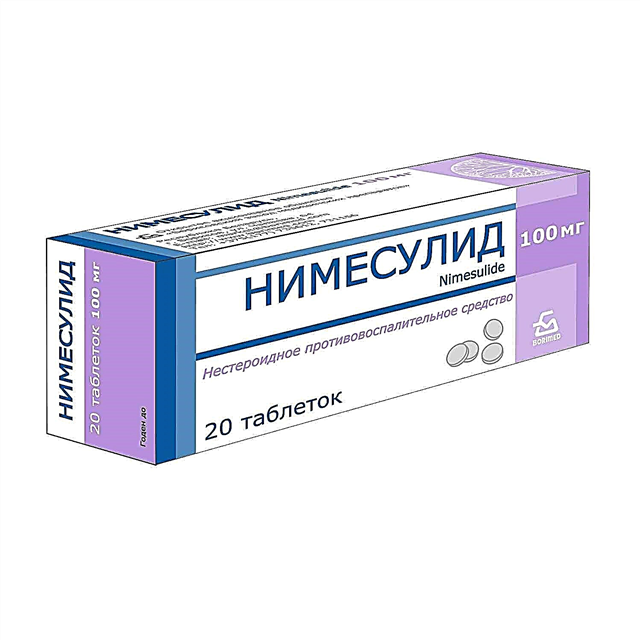In infancy, many babies suffer from dysbiosis. Their not yet strong digestive system is not always able to cope with new food, which leads to disruption. Prebiotics and probiotics will help restore microflora. The preparations contain bacteria useful for newborns. It is they who fight against pathogens and help strengthen the immune system.

Adapting to new foods can cause pain, bloating, and other unpleasant symptoms.
Why do we need bifidobacteria for babies
A large number of microorganisms live in the baby's body. Almost 95% of them are bifidobacteria, lactobacilli and Escherichia coli. There are also conditionally pathogenic microorganisms in the body (Klebsiella, Candida fungi, Clostridia). If the latter begin to multiply actively, and at the same time the number of beneficial organisms decreases, then various infectious processes can be observed.
On a note! The children's intestines are gradually filled with beneficial bacteria, so temporary dysbiosis is often observed. This condition does not require serious treatment. It should pass gradually.
Lacto - and bifidobacteria are part of the milk microflora. They help create a normal environment for the digestive system to function.
Taking medications that contain beneficial bacteria is necessary for newborns if:
- intestinal colic often appears;
- poor weight gain;
- frequent bloating and regurgitation;
- had worms during pregnancy;
- revealed diabetes mellitus;
- the mother has infectious diseases;
- there were premature and complicated labor;
- the baby is on artificial or mixed feeding.

The baby's body has a large number of beneficial bacteria that help digestion and fight pathogenic microorganisms
If the child feeds on breast milk, then all the beneficial microorganisms enter the small ventricle from the mother. Very rarely, when breastfed, babies need to take prebiotics and probiotics.
Differences between bifidobacteria and lactobacilli
Bifidobacteria are gram-positive bacteria that are involved in activating parietal digestion. They are anaerobic and do not need oxygen for energy.
Bifidobacteria fill the intestinal mucosa, thereby creating a barrier and protecting against the penetration of toxins and pathogenic microorganisms. Promotes the production of iron, calcium and vitamin D.
Lactobacilli, in turn, are gram-positive facultative anaerobic bacteria that can exist in an oxygenated and anoxic environment. Lactobacilli are beneficial for the intestines of babies, as they are responsible for the production of lactase, which is needed to break down milk sugar (lactose).
The main differences between lacto - and bifidobacteria
| Criterion for comparison | Bifidobacteria | Lactobacillus |
|---|---|---|
| Percentage in microflora | 90-95% | Up to 5% |
| Main locations | Colon | Oral cavity, vulva, vagina, large intestine |
| Normal amount, CFU / g | 10^9-10^10 | 10^7-10^9 |
On a note! It is incorrect to conclude which bacteria are more useful and necessary for the intestines of newborns. For the normal functioning of the microflora, the presence of all of them in the correct proportion is necessary.
How to choose the right bifidobacteria for a child
For medicines to work, it is important to choose the right ones. If you need to choose the most suitable drug for children, then you should adhere to simple rules:
- For babies, they buy only safe, high quality products that comply with the international GMR standard.
- The doctor should only prescribe drugs that are appropriate for the child's age.
- The box should always contain an instruction leaflet.
- The chosen drug should be comfortable for the baby. It is better to give ready-made suspensions or powders to children under the age of 3-4 years.
- When choosing medicines based on bifidobacteria, the general condition of the child (nausea, vomiting, diarrhea) is taken into account.
- If the baby has a lactose intolerance, then not every drug is suitable for the child.
- It is best if the product simultaneously contains both bifidobacteria and lactobacilli.
- From taking drugs, side effects in the baby should be minimal.

When the balance of bacteria in the stomach is imbalanced, various symptoms are observed
Important! Self-administration of medicines is unacceptable. The choice of the drug should only be made by a professional doctor.
Mode of application
If it is necessary for the baby to take bifidobacteria, it is necessary to follow the general rules. This will help to achieve the best possible effect of the medication and also ensure the safety of the child.
Recommendations:
- The frequency of admission is from 1 to 6 times a day.
- Preparations should not be poured with boiling water, stewed fruit or tea. Beneficial bacteria die at temperatures above 45 ° C.
- Do not increase or decrease the dose prescribed by your doctor.
- The best lacto- and bifidobacteria for babies are living natural products. Therefore, if you need to take in beneficial bacteria, you should add appropriate food to the menu.
- The diet when taking such drugs should be as light as possible.
- If the doctor has prescribed a medicine in capsules and tablets, then they should be opened or crushed, and then added to the baby's food.
- Expired drugs should not be used - this can cause complications of diseases.
On a note! Each drug contains detailed instructions, in accordance with which the medicine is given to the baby.
Contraindications
There are no clear contraindications to taking drugs based on bifidobacteria. One thing is known for sure that they are not taken for prophylaxis, but drunk when necessary. Taking medications is prescribed by the doctor, then there will definitely be no side effects.
Allergy to lactobacilli is extremely rare. In some situations, there are contraindications to their use:
- the presence of a birth injury;
- allergy;
- prematurity.

Only a doctor should prescribe drugs for the treatment of infants.
Lactobacillus for babies
Bifido, - and lactobacilli for newborns have a positive effect on digestion and other processes in a small body:
- improve metabolic functions;
- prevent the lack of certain vitamins;
- stimulate and strengthen the immune system;
- lower cholesterol levels;
- destroy toxins and pathogenic microorganisms;
- participate in the formation of special enzymes;
- help to restore the balance of beneficial bacteria.
On a note! It is the lack of lactobacilli that provokes many unpleasant symptoms (flatulence, colic, constipation). With their lack, the development of the immune system and the baby in general is impaired.
Methods for improving digestion
Lactobacilli, which the baby should receive from the mother with breast milk, is necessary for his digestion. Without their presence, immunity will not form normally, the endocrine system will not function, and the child will generally develop.

Beneficial natural bacteria can also help restore gut microflora
Weak immunity, poor ecology, unbalanced nutrition of the mother, taking antibiotics provoke digestive problems. The process of natural introduction into the children's intestines of bifido and lactobacilli is disrupted.
To prevent the emergence of more serious health problems, as well as a weakening of the immune system and developmental delay, a pediatrician may prescribe medications for infants that contain lactobacilli. They are completely harmless. For the first six months, they can be used to combat colic and bloating.
On a note! In many European countries, lactobacilli are included in the daily diet of newborns.
When are lactobacilli prescribed
The main reason why lactobacilli-based drugs are prescribed is indigestion. A similar problem is caused by a change in the composition of the beneficial bacteria in the intestine.
The reasons for the violation are:
- taking antibiotics;
- chemotherapy;
- chronic colitis.
Lactobacilli for infants (preparations based on them) are useful for various intestinal infections, since these microorganisms act as a barrier against pathogenic harmful bacteria (shigella, E.coli, staphylococci).
If the baby is fed with adapted mixtures, then lactobacilli can be taken for prophylaxis. Such preparations will help smooth out possible digestive difficulties when digesting new foods.
Rating of the best drugs
Any medicines, including those with beneficial bacteria, can be given to newborn babies only as directed by a doctor. He will determine, according to the condition of the child, which is the best bifidobacterium for newborns.
Young parents need to know the list of the most effective and popular drugs:
- Simbiter-M for children. The composition contains live bacteria for babies (lacto and bifido). It is presented as a powder that can be given to babies from 1 month old, mixed with breast milk or formula.
- Hilak Forte. Designed to normalize the intestinal microflora, eliminate flatulence. Can be used from birth.
- Narine. BAA based on lactobacilli.
- BioGaya. The drug is in the form of drops. It is most often used in the treatment of artificially fed children.
- Bifidum-multi. The drug is based on bifidobacteria, which help children to restore the natural microflora, prevent dysbiosis. It is used from birth to 3 years.

If the baby is not worried about anything, then he will have a good mood.
Whichever drug is chosen for the treatment of the baby, parents should remember that it is important to observe the dosage and strictly follow the doctor's prescriptions. Self-medication can be hazardous to a child's health.



